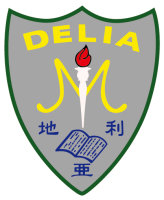| Language Policy |
We offer both English and Chinese as the medium of instructions. Students will be allocated to study in the respective medium with reference to their previous academic background, personal preference and language competency. For some classes, students from Mainland China and students from ethnic groups will be mixed together in a class, in order to enhance interaction between the two. For Chinese students whose English proficiency is outstanding, they will be offered a choice to use English as the medium of instruction for some subjects while the same for the ethnic minority groups. In addition, given the background of diverse ethnic groups, English, Putonghua and Cantonese have become the languages of communication in students’ daily school life. |
| Learning and Teaching Strategies |
Our school curriculum aims at equipping students with essential life-long learning experiences for whole person quality development in the areas of ethics, intellect, physical development, social skills and aesthetics, so as to prepare students to become 'active, responsible, and contributing members of society, the nation and the world'. Helping students to 'learn how to learn' by cultivating positive values, attitudes, and a commitment to life-long learning as well as developing generic skills to acquire and construct knowledge constitutes a major part in the curriculum. |
| School-based curriculum |
1. Electives: 3X. School-based curriculum in different subjects is available with reference to students’ needs and capabilities, including English, Computer & Technology, Integrated Humanities, Arts and Chinese History for Non-Chinese speaking students.<br><br><br> 2. Curriculum highlights: Our school curriculum is designed help students to learn how to learn through cultivating positive values, attitudes, and a commitment to life-long learning to develop generic skills to acquire and construct knowledge, which is essential for the whole-person development to cope with challenges of the 21st century. <br><br>A quality curriculum for the 21st century should therefore set the directions for teaching and learning through a coherent and flexible framework which is adaptable to changes and different needs of students and school. |
| Approach to Catering for Learner Diversity |
The school provides support through the Guidance Committee and Career Guidance Committee to help and guide all students. In addition, we also work closely with the school social workers. In the learning aspect, students are offered a choice to make use of English or Chinese as a medium of instruction. Curriculum adaptation, both enhancement and remedial-based, is run in the present curriculum to meet the needs of different learners. Separate grouping arrangement is offered for the learning groups in need, for learning and teaching effectiveness. |
| Approach to Integrated Education |
The school has a policy and mechanism in place to cater for student diversity in learning. The Special Educational Needs Coordinator (SENCO) and different professionals, including the educational psychologist, clinical psychologist, speech therapist and counselor, lead the teachers of the whole school to cater for diverse learning needs in line with the school inclusive culture, policies and measures. The school has an identification mechanism to identify students with different types and levels of special educational needs and provide appropriate support to them through enhanced teaching in regular lessons, small group activities and individualized counselling. We also provide additional support for NCS students to facilitate their learning of Chinese by using the Grant for Supporting NCS Students with SEN. Executive functioning training group, Social skills training group and Sand art performance group are organized in order to support students of their individual learning needs. |
| Education Support for Non-Chinese Speaking (NCS) Students |
|
| Home-School Co-operation |
Parents' Gatherings, Parent-Teacher Interview Day, Parent-Teacher Association outings and workshops are held yearly, letting parents, teachers and students be engaged with each other more in order to assist students to develop in both academic and non-academic aspects. |
| School Ethos |
We are dedicated to building an inclusive school in harmony to cater for the learning needs of our Non-Chinese speaking students and our local counterparts. Our Discipline Guidance Committee and Career Guidance Committee provide support to help and guide all students. In addition, we work closely with our stakeholders and various NGOs to maximize our services to our students. |
| School Development Plan |
1. Promoting and supporting active and independent learning<br>2. Guiding students to build positive values and equip them for future workplace <br> |
| Teacher Professional Training and Development |
Our teachers take active part in external workshops, seminars and lectures besides regular in-house task-based professional development activities and interflow to keep themselves abreast of the latest educational development. For teachers' continuous professional development, professional sharing is organized at the staff meeting regularly. We also offer study subsidies for teachers to conduct professional development outside. |
| Life-wide Learning |
Regular extra-curricular activities, aiming at nurturing students' potential, include Subject Clubs, Girl Guides, Red Cross, Volunteer Service Team, Peer Counseling Scheme, IP Prefect, Prefect, Library Club, Campus TV, Multicultural Ambassador Group, Student Activity Centre Ambassador Group, Choir, Chinese and English Drama Teams, Chinese Debate Team, Brass Band, Basketball Team, Football Team, Athletics Team, Cricket Team, Hockey Team, Swimming Team, Volleyball Team, Rugby Team, “Our Voice”, the Literature Creation Magazine, Fencing Class, Tae Kwon Do Class, Wushu Group, Mixed Martial Arts Group. We also organize interest group classes such as Bakery Interest Group, Rock Climbing Interest Group, Skateboarding Interest Group, Ukulele Interest Group and Students’ Welfare Association. Inter-house competitions and subject-based activities such as lunch programmes are also held regularly. Besides, various visits, field trips, workshops and service activities are organized on an irregular basis, in order to let students explore and learn more in different aspects.<br> |
